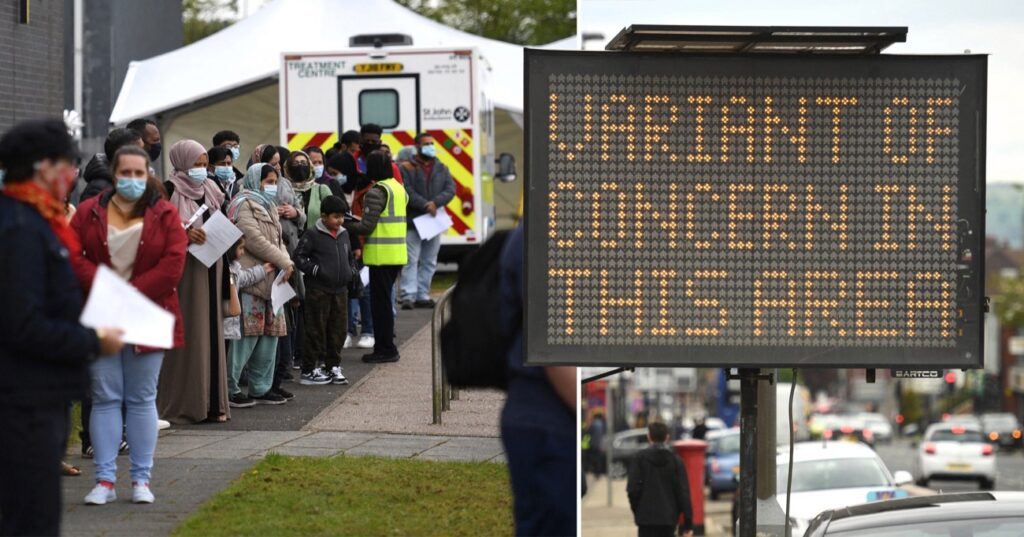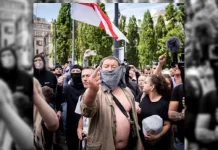The virus which has seen thousands of fatalities in India is known as the B1.617.2 variant. It’s now spreading in several areas of the UK
Surge testing is being carried out after the latest outbreak of the Indian coronavirus variant in the UK.
The B1.617.2 variant is spreading in several areas of the UK, especially in parts of the North West where the rate has been rising the quickest. Thousands have been queuing at the Bolton ‘vaccine bus’ as India variant surges.
Now NHS Test and Trace is providing additional testing and genomic sequencing in Nuneaton, Warwickshire, following the detection of the Indian coronavirus variant. The testing is taking place in the Wembrook and Abbey wards of the town.
Residents who live or work in these targeted areas, including all children over the age of two, are being encouraged to take a PCR test whether or not they are showing symptoms.
Meanwhile, enhanced contact tracing will be used for those who test positive with a variant of concern.

It comes after health secretary Matt Hancock announced on Monday that there were 2,323 confirmed cases of the Indian strain in the UK, meaning cases had doubled in just four days.
He added that 86 local authority areas had recorded at least five cases of the variant.
The strain has also been spreading in areas of London, the East Midlands and the South East.
In Bolton and Blackburn with Darwen, it is now the dominant strain with a total of 483 cases across the two areas, with Bedford the next worst area for the variant.
Vicky Head, Bedford’s director of public health, said she was “really worried” about the spread of the variant in the area.
But despite the variant’s surge, Boris Johnson has so far said that there was no “conclusive” evidence to deviate from the road map out of lockdown despite concerns over the Indian coronavirus variant.
The government will lift the remaining rules on 21st June, but this is contingent on four tests.
These include the vaccination programme’s success, reduction in hospital admissions and deaths among those vaccinated, infection numbers do not risk a surge in hospitalisations, and the risks do not fundamentally change by new variants of concern.
If outbreaks are limited, ministers could opt instead to push ahead with the reopening while keeping some areas under restrictions in an echo of the controversial tiers system introduced in 2020.
The prime minister said the “wall of defences” built up by the vaccination programme meant he doesn’t see “anything conclusive at the moment to say that we need to deviate from the road map”.
But, he added: “We’ve got to be cautious and we are keeping everything under very close observation.
“We’ll know a lot more in a few days’ time.”
Mr Johnson said data from hotspots including Bolton, Blackburn, Bedford and Sefton were being examined to find out more about the impact of the variant.
Asked whether local lockdowns could be used, Johnson said: “We’ve just got to be cautious about the way we approach it and we will be letting people know as much as we can, as soon as we can.
“But at the moment we don’t see anything conclusive that makes us think we have to deviate from the road map.”
Earlier, cabinet minister George Eustice had said local lockdowns “would be an option and we cannot rule anything out”.















